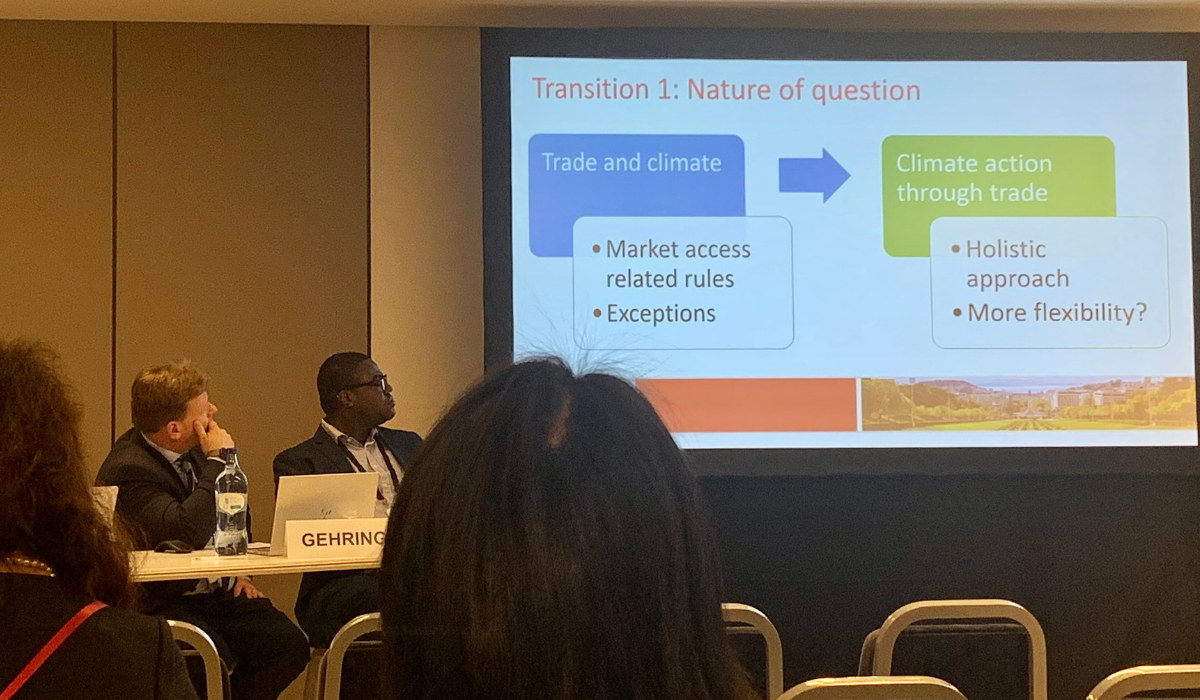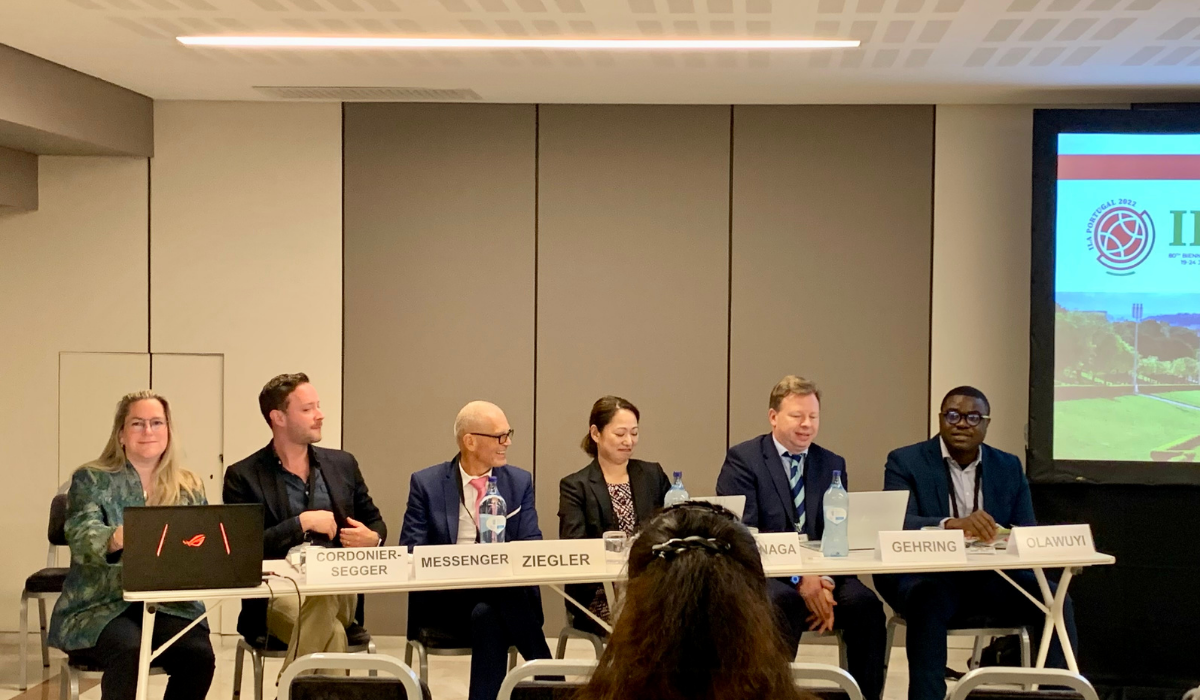Lucy Law Fellow and DoS, Professor Marie-Claire Cordonier-Segger, discussed climate action at the 2022 International Law Association conference in Lisbon.
On the 22nd and 23rd of June 2022, three expert panels on International Law, Climate Change & the UN Sustainable Development Goals (SDGs) featured at the ILA 80th Biennial Conference in Lisbon.
The first panel’s discussion was chaired by Prof Armando Rocha of the ILA Portuguese Branch and focused on International Perspectives on Environmental Impact Assessment.
Leverhulme Trust Prof, Marie-Claire Cordonier Segger, Senior Law Fellow and Director of Studies for Graduates at Lucy, who serves as Senior Director of the Centre for International Sustainable Development Law, contextualised the design and implementation of SIA and EIAs being conducted on trade, investment and financial agreements, ex-ante and ex-post. Sharing findings from her new volume with OUP, Athena’s Treaties, she argued that the ‘impacts of an impact assessment’ are observable in many ‘new generation’ economic treaties, with potential to guide trade and financial flows towards more sustainable development. As she explained, through various forms of impact assessments, tensions are being identified, and investment and financial law provisions are being adopted in the economic treaties which can help tailor the treaties to better align with the UN SDGs. Possible solutions being piloted by States include integrating sustainable development as object and purpose in FTAs and IAAs, as well as including exceptions or ‘conflicts clauses’ in the treaties to prevent them from constraining legitimate international or domestic sustainability policies or laws; adopting tailored ‘flanking measures’ such as parallel cooperation agreements, work programmes or chapters on trade and sustainable development; and crafting innovative measures to promote trade and finance for more sustainable goods and products. Procedural innovations, particularly SIA methods, inter-agency coordination, public engagement and dispute settlement, were key for the careful treaty crafting required, she noted.

The expert panel was extremely well received by the assembled delegates of the ILA.
In a separate panel, Dr Markus Gehring and HBKU UNESCO Chairholder on Environmental Law and Sustainable Development, Prof Damilola Olawuyi, invited renowned experts to a panel discussion on current issues of International Trade, Investment and Climate Law.
All experts focused on the immediacy of climate change and its impacts. Amid all valuable arguments in favour of a holistic approach, the experts argued for the use of a plethora of different instruments and their sensible interpretation.
Prof Marie-Claire Cordonier Segger focused on the 'Paris Rulebook' and other outcomes of the Glasgow COP26, and how international climate finance instruments and pledges can be supported by policy and legal reform towards sustainability. Current Visiting Fellow at the Lauterpacht Centre for International Law, Prof Yuka Fukunada, pointed to the importance of changing both the nature of commitments and the type of carriers and making their mechanisms more flexible. Here, world trade law could address matters of trade and climate change not only through market access-oriented rules and relevant exemptions, but climate action could be promoted through trade itself. In this context, the distinguished Prof Andreas Ziegler presented, amongst other things, the possibility of using tariffs and a restructuring of the customs system to induce steering functions towards stronger climate action. He identified further areas of focus particularly in the field of financing, commodities and the involvement of private actors, as has been stipulated in the Global Agenda 2030 and the embedded SDGs. The demand that emerges from the assessment of the international speakers is unambiguous: more commitment and partnership is needed to tackle the joint challenges in the fight against climate change.
On a third panel, chaired and moderated by Prof Marie-Claire Cordonier-Segger, experts exchanged views on possibilities to enhance the effectiveness and robustness of climate action and the SDGs on the basis of international law.
The discussion focused on the design and application of compliance mechanisms and capacity building. The expert panellists recognised that pressing demands on our societies due to the impacts of climate change require the deployment of a broader scope of legal instruments.
University of Cambridge Law Faculty Associate, Prof Markus Gehring, and UNESCO Chairholder on Environmental Law and Sustainable Development HBKU, Prof Damilola Olawuyi, addressed the importance of increasing stakeholder participation, which considerably influences the creation of international law and its implementation. In this context, thinking must transcend individual areas of law and enable a sustainable transformation by means of the widest possible range of legal mechanisms.
C-EENRG Fellow and Brunswick European University, Prof Winfried Huck, further argued the importance of measuring the degree of achievement of the SDGs, which so far has not been satisfyingly feasible, partly due to the lack of data, its inaccuracy or the inadequately designed indicators in the SDG Global Indicator Framework. He also referred to recent developments, including within the WTO, such as the recently set fisheries agreement, which, however, appears incoherent and does not address urgent issues such as the exclusion of subsidies.




